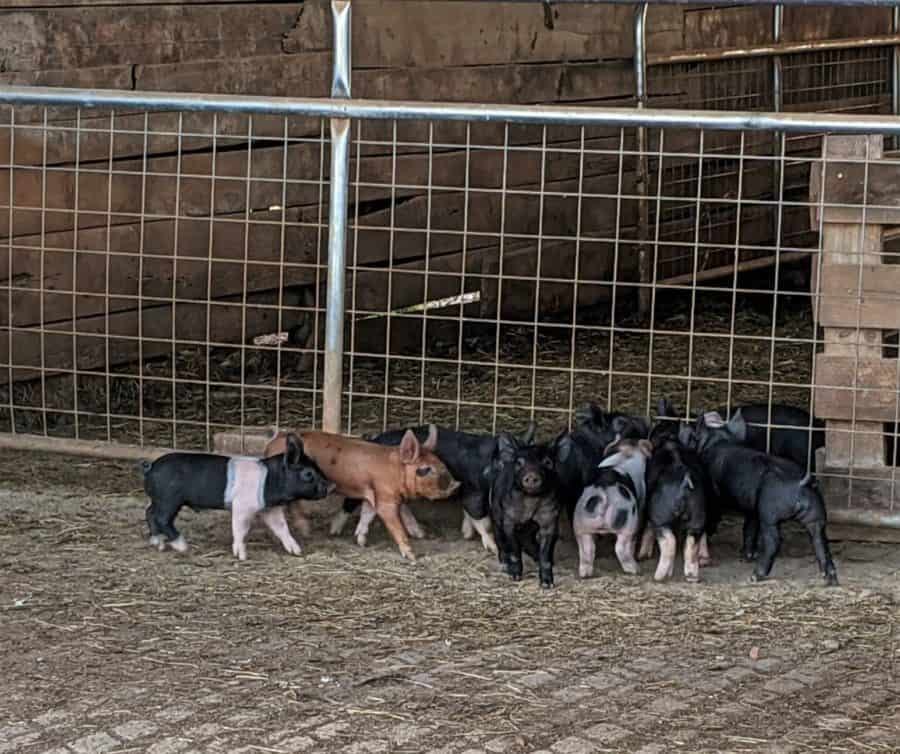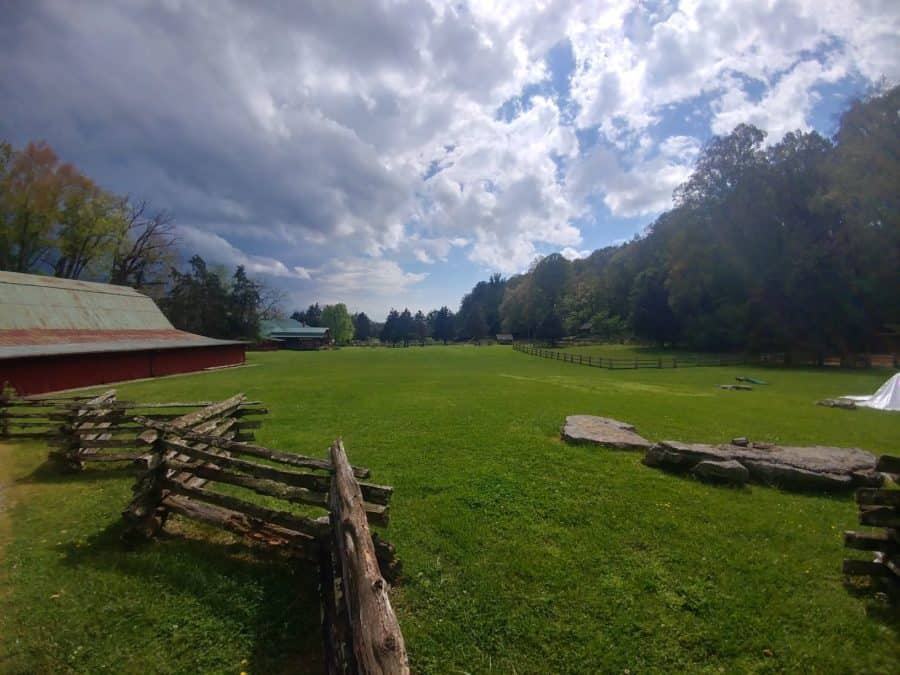I’m not sure where we crossed into Appalachia but we are surely here now. In fact, we may have been in Appalachia for a month or more depending on where the lines are drawn. It also depends on when and why the lines were drawn. As we crossed the Cumberland River Valley and started climbing into the mountains of East Tennessee we are most definitely in Appalachia. We will be in Appalachia for the entire summer.

The term Appalachia describes either the mountains or the culture (or both). The mountains start in Canada and reach all the way to Alabama and Georgia. The cultural region starts in Georgia to the south and reaches north and includes the Virginias. Most define the cultural region as the mountainous areas. Geographically speaking we have been and are still on the edge of this vast region. Culturally, we are also on the edge of Appalachia. This includes our stay in Knoxville and started in Nashville. In the next two months, we will be in the heart of the cultural center in the Great Smokey Mountains and the Blue Ridge Mountains.
Back on the Farm
Our stop east of Knoxville was to be a rest and relaxation stop. As you know from our previous post that our eight-day one-location stay turned into a three-stop emergency rerouting. Here is a quick link in case you missed it. Can’t Leave, what now?

We did get a one-location four-day stop east of Knoxville and most of the time it rained. Our first stop on the reroute was the Lick Skillet farm. Even though we only spent two nights here, we loved it (with one exception, explanation later).
Lick Skillet Farm was a traditional Tennesse “Ranch”. I had to ask why they called it a farm. The explanation was it is a farm because it is east of the Mississippi River. If it was west of the Mississippi River it would have been called a ranch. The term “Horse Ranch” bridges both sides of the river, but Lick Skillet has way more than horses. What they don’t have is row crops. Or at least they don’t currently have row crops. Out west, if you have row crops (corn, wheat, etc.) you are talking farming. If your specialty is animals, then we call it a ranch. It may have only been me, but from my perspective growing up in Colorado, farming was considered a step below ranching. The term sod-buster comes to mind when talking about farming.

Anyway, Lick Skillet doesn’t farm and they don’t have the wide-open spaces of a western ranch. Instead, they have good soil with plenty of rain and very happy animals. I haven’t seen grass this deep since we were in Oregon. The horses were knee-deep in grass, the pigs were belly-deep.
Not a traditional farm
Lick Skillet also doesn’t operate as a traditional farm in that the owners don’t dictate the operations from the top down. Instead, they have many farmers on the property who all work together to operate the farm. I guess I would call them guest farmers and this explained how one farm could have lots of different families coming and going all the time to work the farm. It must take a keen organizer to make it all work.

Horses, cattle, pigs, and chickens
They were all here, the most entertaining of the bunch were the two week-old piglets. All the big animals were confined within large areas with fences. The piglets however were not constrained by the thin wire and went where ever they could fit. The piglets also moved at high speed doing piglet stuff. Soon as they grow (we haven’t been here long enough to observe) they seem to double in size every two weeks.

I know I mentioned our one stressor at Lick Skillet and that was the guard dog doing his job. He did his job all night long and he wasn’t guarding quietly. We knew he didn’t quit guarding, not even once, from sunset until sunrise. I guess I could mention that in the daytime he was a nice dog, not mean at all, perhaps he was just tired from working the night shift.
Appalachia
Oak Ridge National Laboratory and the Manhattan Project Museum for us, turned into a bust. Not open for my kind of tourism. I saw more history of this era in a second-hand (surplus) junk shop in Los Alamos, New Mexico. As for the laboratory, we saw the fence and the trees beyond the fence. Instead, we found a wonderful stop to explore Appalachia.

Museum of Appalachia
The museum is on my must-see list even though we didn’t know it was there. This is a private location started by a family with a vision of showing the culture of Southern Appalachia to as many people as they could get through the doors. I am very impressed. They have a musical instrument collection that was bigger than the Country Music Hall of Fame. They also have a functional farm (and ranch) on the property complete with livestock. I am sure the buildings have been gathered and reconstructed on the property.
Hollywood
The museum also was the “Hollywood” stage for the TV series “Young Daniel Boone”. (Sorry Dave it wasn’t the same as the Fess Parker Daniel Boone series that you were in.)

Collections
The sixty-five-acre property is home to an Appalachian-style community setting, complete with family farm plots with more than 35 cabins and outbuildings. The biggest buildings were stuffed with more than 250,000 artifacts, some of which are not on display because they were loaned to the Country Music Hall of Fame and Smithsonian Museum.

I was impressed enough to call Elaine (the President of the non-profit) and tell her that I was going to put this museum in my blog as a must-see attraction. What I would like to see is for a big name country music star to get behind the museum and start attracting some more people. (Dolly are you reading my blog?)
Please subscribe and join us on our journey
We will add you to our email list and send you updates about once a week. Here is a link. Subscribe


Great piece Scott. Looking forward to reading & learning more about the region. Stay safe. Chip
We are quite in awe of all the green here.
We have not heard the banjos yet, probably because of the COVID restrictions on gatherings.
I’m not sure what I like more, Scott; your photos or your writing. At any rate, keep it up! Great blog.
I am so happy to impress you.
Pictures here are easy, it is all in the subject.
As for the writing, my editor does the heavy lifting.
Top notch writing as always Scott. Karen & I went to Knoxville last year. Hiked in the Smokies. Beautiful area!
Tom
We went to the Great Smokies National park last week, in the rain, the road was closed to cars because it was Wednesday. They let hikers and bikes use the road without cars. We will have to go back with the bikes.
In about two weeks we will be spending two weeks camping in the park.
Your photos are great! I love all the green. It looks exactly how one imagines Appalachia. And the peacock is just beautiful.
Hopefully, the great pictures will continue.
It isn’t hard and only requires going out of the RV. Everything is so beautiful and green.
Today we are hunting down another waterfall.
Beautiful landscapes & peaceful, Thanks
It is so very peaceful.
Tennessee is at the top of our list. Spring here just keeps getting better and better.
Very interesting. I was wondering how the place got to be named Lick Skillet. The name made it sound painful. 😀 safe travels.
The story goes that more than one hundred years ago when the farm was purchased the land was considered used to the point of being worthless.
So when the farm was started the criticism was that they were going to be so poor to the point that they would be licking the skillet to survive. They adopted the name and recovered the land and now it seems to be very nice…